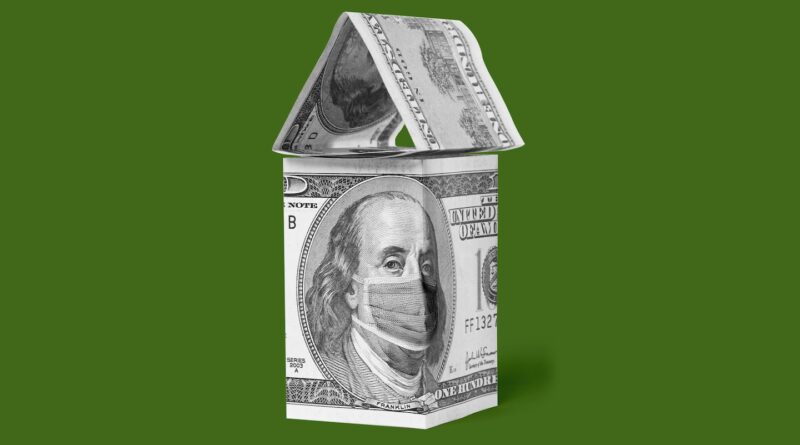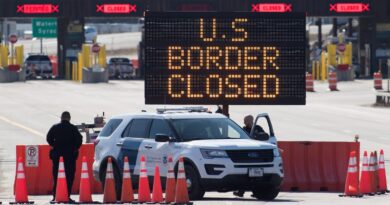No one likes resort fees — especially during a pandemic – The Washington Post
Jeremy Medina has always thought resort fees were “kind of ridiculous.”
Such fees, tacked on top of a daily room rate and often opaque when comparing hotel prices online, are meant to cover anything from WiFi to gym access, pool towels, water bottles, restaurant discounts, lobby wine, local phone calls and in-room coffee.
Then Medina stayed at a hotel in the Orlando area last October where many of the services covered by the fee — including a shuttle to Disney theme parks — were not available because of the coronavirus pandemic.
“I am very pro-being cautious about the virus, so I didn’t push it,” said Medina, 37, of Vero Beach, Fla. “I didn’t want to be, like, a Karen.” But the more amenities that he discovered were unavailable, the more the daily fee — which he believes was about $25 — bothered him.
“I was annoyed and frustrated, but I wasn’t really that surprised,” Medina said, and on each of those counts, he isn’t alone. Resort fees in recent years have become a target of consumer complaints, watchdog ire and even legal action.
The American Hotel and Lodging Association says on its website that most consumers are willing to pay resort fees if the amenities are worth it — but it also notes that the vast majority “want to be informed of the fee at the ‘beginning of the process when looking for rooms.’ ”
Based on a 2018 survey, the industry group said 93 percent of hotels do not charge resort fees and those that do follow Federal Trade Commission guidance about displaying them clearly.
It’s not clear, though, how many hotels reduced their fees along with their services during the pandemic. Hilton told The Washington Post last year that some properties had “removed mandatory fees because of reduced amenities or services created by government restrictions, social distancing requirements and other impacts,” or else supplemented services where fees were still being charged.
Even when amenities return, they might involve more risk than a wary hotel guest wants to take — the dining may be indoors; the fitness center may be small — or they might only be available in a limited capacity.
Ski resort manager Paul Hosler, 66, said he stayed at a Reno, Nev., hotel late last month that touted, as part of its $65 resort fee, free valet parking and access to a pool and fitness center.
“However, large signage notified guests that valet, the pool and the fitness center were closed due to covid,” Hosler, of Mount Shasta, Calif., said in an email. “Yet they charged the full resort fee.”
He said he “always” complains about resort fees, to no avail. “They just smile and nod their head,” he said.
Travel industry analyst Henry Harteveldt, president of Atmosphere Research Group, said in an email that he had not noticed hotels lowering or eliminating their fees.
“Resort fees, and their equally unpleasant and unwelcome sibling, in-city destination fees, are alive and well,” Harteveldt wrote. “Hotels know their guests don’t like them, and they don’t care. Hotel owners are more focused on their bottom lines.”
He added: “Having lost so much money due to covid during the past 18 months, and with a halting, limited resumption of business travel, hotel owners are going to do everything they can to replenish their bank accounts — guests be damned.”
Before the onset of the pandemic, momentum was building against the pricing practice. Attorneys general from every state and D.C. launched an investigation. Lawsuits followed against Marriott and Hilton by D.C. and Nebraska, respectively, in 2019, accusing the hotel companies of deceptive and misleading behavior. Members of Congress proposed legislation.
And yet: “Not a lot has changed,” said Lauren Wolfe, an attorney who founded the website killresortfees.com.
A representative from the Nebraska attorney general’s office said its case is ongoing; the D.C. office did not immediately respond to questions about the status of its suit.
Wolfe, meanwhile — on behalf of the consumer advocacy group Travelers United — filed suit in February against MGM Resorts International, alleging the resort fees it charges amount to price deception. The suit pointed out that the supposed benefits covered by the fees have been largely absent.
“During the covid-19 pandemic, the room rates at MGM hotels have decreased to meet consumer demand,” the complaint reads. “However, the resort fees have not been lowered despite the elimination or significant reduction to the services the hotel claims the resort fee provides.”
MGM declined to comment on the lawsuit and its resort fees.
Wolfe said the pandemic has “clearly shown” that there’s no actual correlation between the fees and amenities. She recently stayed in a New York City hotel after using a “name your own price” tool to book and still discovered an extra fee on top of that price.
“Not one of the advertised amenities was even there,” she said. “One of them was, like, an in-room Nespresso maker. Then they said they took those away because of the pandemic.” According to the hotel’s website, the gym — also covered under a facilities fee of $35 plus tax — can only be used by appointment.
Wolfe said she paid the fee but plans to file a consumer complaint with her attorney general in D.C., a strategy that has gotten her refunds in the past.
Jason Cochran, editor in chief of the travel site Frommers.com, has been “pretty outraged” about resort fees for years — and wrote about the “scam” of pandemic-era fees a year ago. He said he doesn’t begrudge the reduction of some services for safety reasons, only that the fees have stuck around.
“I’ve been disappointed by the industry for many years,” Cochran said. “Increasingly, though, I’m just disappointed in consumers for rolling over, for not fighting back. Unfortunately, the pandemic has taught us all to deal with diminished expectations.”
In the absence of government action, he said, travelers should refuse to stay in hotels that charge resort fees. While guests can try to argue their way out of the fee, Cochran acknowledged that the effort would be “a lot,” especially amid an industry staffing shortage.
Travel adviser Enrique Brener, based in the Miami area, tries to steer his clients away from hotels that charge resort fees. Still, in just the past couple of weeks, he’s had a few bookings in Las Vegas where the fees amounted to $45 or $50 a night.
“It’s something that, unfortunately, is not going to change unless they’re forced,” he said.


